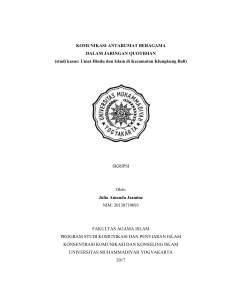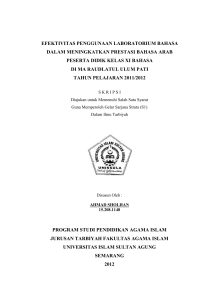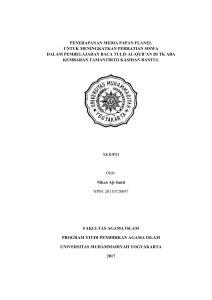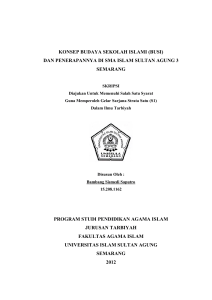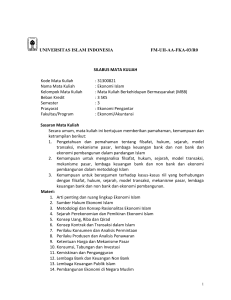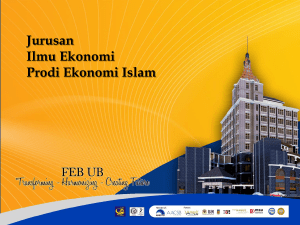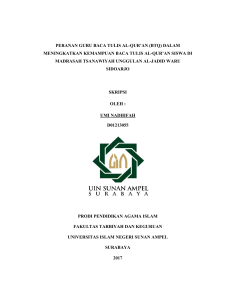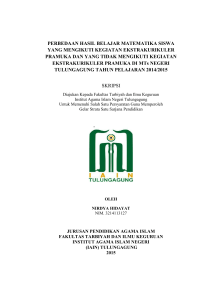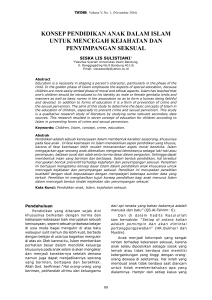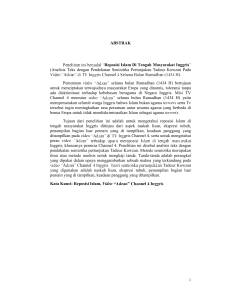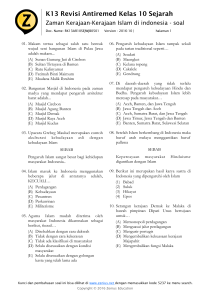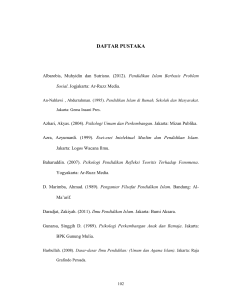PANDANGAN ISLAM TERHADAP KELOMPOK DALAM
advertisement
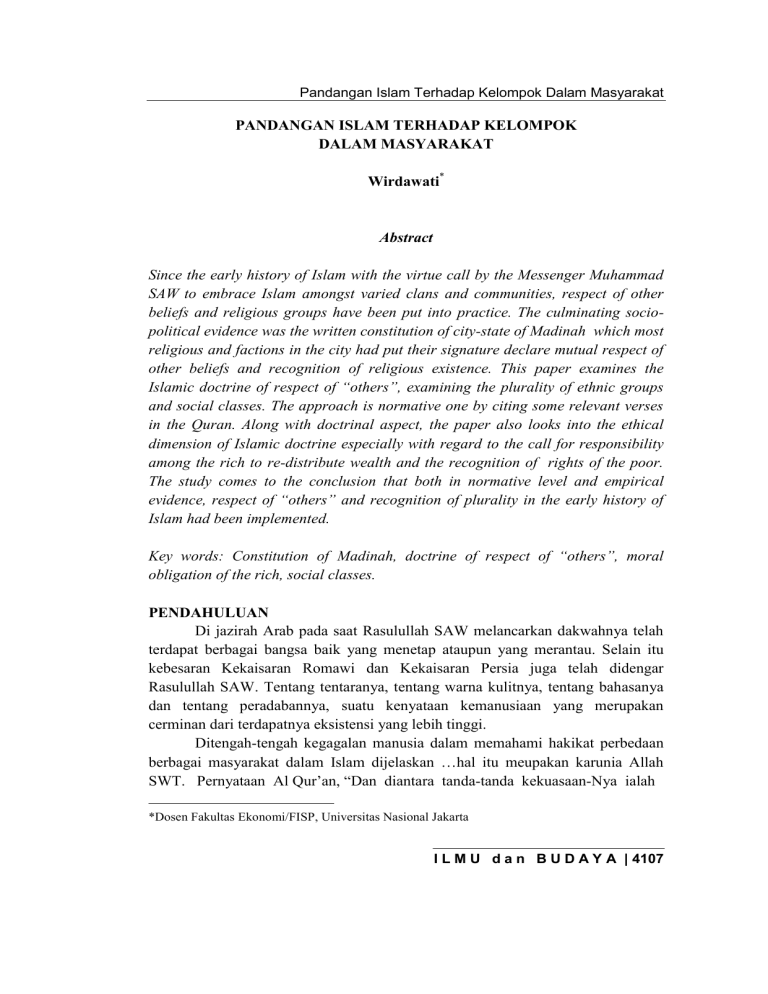
Pandangan Islam Terhadap Kelompok Dalam Masyarakat PANDANGAN ISLAM TERHADAP KELOMPOK DALAM MASYARAKAT Wirdawati* Abstract Since the early history of Islam with the virtue call by the Messenger Muhammad SAW to embrace Islam amongst varied clans and communities, respect of other beliefs and religious groups have been put into practice. The culminating sociopolitical evidence was the written constitution of city-state of Madinah which most religious and factions in the city had put their signature declare mutual respect of other beliefs and recognition of religious existence. This paper examines the Islamic doctrine of respect of “others”, examining the plurality of ethnic groups and social classes. The approach is normative one by citing some relevant verses in the Quran. Along with doctrinal aspect, the paper also looks into the ethical dimension of Islamic doctrine especially with regard to the call for responsibility among the rich to re-distribute wealth and the recognition of rights of the poor. The study comes to the conclusion that both in normative level and empirical evidence, respect of “others” and recognition of plurality in the early history of Islam had been implemented. Key words: Constitution of Madinah, doctrine of respect of “others”, moral obligation of the rich, social classes. PENDAHULUAN Di jazirah Arab pada saat Rasulullah SAW melancarkan dakwahnya telah terdapat berbagai bangsa baik yang menetap ataupun yang merantau. Selain itu kebesaran Kekaisaran Romawi dan Kekaisaran Persia juga telah didengar Rasulullah SAW. Tentang tentaranya, tentang warna kulitnya, tentang bahasanya dan tentang peradabannya, suatu kenyataan kemanusiaan yang merupakan cerminan dari terdapatnya eksistensi yang lebih tinggi. Ditengah-tengah kegagalan manusia dalam memahami hakikat perbedaan berbagai masyarakat dalam Islam dijelaskan …hal itu meupakan karunia Allah SWT. Pernyataan Al Qur’an, “Dan diantara tanda-tanda kekuasaan-Nya ialah *Dosen Fakultas Ekonomi/FISP, Universitas Nasional Jakarta I L M U d a n B U D A Y A | 4107
